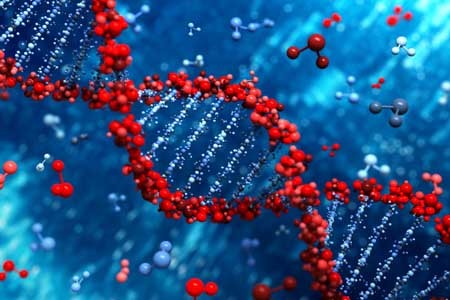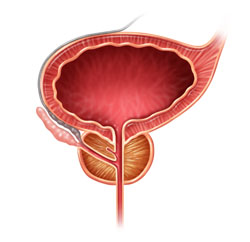Vitamin D Has More Benefits Than Previously Thought
 Vitamin D has long been known as an important vitamin for bone health, preventing conditions such as osteoporosis and rickets. More recently, research suggests that vitamin D may also protect against conditions such as cancer, heart failure, diabetes, respiratory tract infections, and autoimmune disease.
Vitamin D has long been known as an important vitamin for bone health, preventing conditions such as osteoporosis and rickets. More recently, research suggests that vitamin D may also protect against conditions such as cancer, heart failure, diabetes, respiratory tract infections, and autoimmune disease.
Many Americans have low vitamin D or a vitamin D deficiency. The human body produces vitamin D in large amounts when the skin is exposed to ultraviolet B rays in sunlight. Vitamin D can also be absorbed from vitamin D–fortified foods such as dairy products, some orange juice, and cereals. Some foods such as fatty fish, beef liver, and egg yolks naturally contain some vitamin D, but it is difficult to get enough vitamin D just from consuming these foods.
Low mood or seasonal affective disorder (SAD), in which people feel depressed during winter periods of limited exposure to sunshine, have been linked to low vitamin D.
Other symptoms of low vitamin D vary but can include pain in the joints, bones, or muscles; fatigue; and breathing problems.
Editor’s Note: A few small studies have suggested that 1,500 IU per day of vitamin D supplements can help depressed mood, even in those with normal vitamin D levels. Several studies have indicated that children or adolescents with psychiatric disorders are especially likely to be vitamin D–deficient. Another study found that higher amounts of vitamin D (4,000 IU) could improve cognition in healthy volunteers more than lower doses could. Vitamin D also improved cognition in people with multiple sclerosis and in those with the autoimmune disease Hashimoto’s thyroiditis.
Lithium May Reduce Cancer Risk
New research suggests that cumulative exposure to lithium may correlate with reduced cancer risk in patients with bipolar disorder. A 2016 article by Yi-Hsin Yang and colleagues in the British Journal of Psychiatry reports findings from a Taiwanese population database study of 4,729 adult patients with bipolar disorder, 115 of whom were diagnosed with cancer. Those who had been prescribed lithium (with or without anticonvulsants) had lower rates of cancer (1.96%) than those who received only anticonvulsants (2.65%).
Incidence of cancer was higher among the patients with bipolar disorder than the general population in the study. Other studies have indicated that cancer risk is higher among people with bipolar disorder than those without.
Those people who took a recommended maintenance lithium dose for 215 days or longer had a 44.8% lower risk of cancer than those who took only anticonvulsants.
DNA Repair Plays Role in Brain Development, Cancer, and Aging
DNA has several ways of repairing itself. Serious damage, including breaks to both strands of the double helix and problems with replication, prompt a process known as DNA damage repair, or DDR. Researcher Stephen J. Elledge of Harvard Medical School won the 2015 Albert Lasker Basic Medical Research Award for his findings about DDR. He summarized these findings in a September article in the journal JAMA.
DDR occurs because of DNA’s remarkable self-awareness. Through the DDR process, DNA can detect when it has been damaged and prompt the right kind of repair. When damage occurs, DDR allows for the activation of enzymes that can remodel DNA to maintain the integrity of the genome.
When DDR pathways are activated, they can alter more than 1000 different proteins. DDR can affect immune function, blood and bone marrow, viral response, cancer, aging, and brain development.
Mutations in components of the DDR pathway can lead to problems with brain development, including Seckel syndrome (characterized by dwarfism, brain and facial abnormalities, and mental retardation) and ataxia telangiectasia (loss of control of bodily movements along with weakened immune system).
DDR is particularly relevant to cancer, since properly functioning DDR promotes a stable genome. Classic cancer treatments such as radiation and chemotherapy also rely on DDR to prompt cell death.
DDR also plays a role in aging. When we get older or have certain illnesses, telomeres, bits of material at the end of DNA strands that protect the DNA during replication, get shorter. This prompts DDR to engage in tumor prevention measures, either killing off the cells or changing them into what’s called senescent cells. Senescent cells prevent tumors, but their accumulation is associated with chronic inflammation, aging, and age-related diseases.
Editor’s Note: You can protect your telomeres and possibly hold off the age-related effects of DDR. Healthy diet, exercise, meditation, goal setting, and making positive contributions to society all help maintain telomere length. Lithium treatment also directly increases telomere length.
Clarifying the Effects of a Diabetes Drug that Improves Bipolar Depression
Research continues on pioglitazone, a drug typically used to treat diabetes but with other positive effects on depression and stroke risk. Some researchers are working on determining whether the drug increases the risk of developing certain cancers, including bladder, prostate, and pancreatic cancers. A recent study by James D. Lewis and colleagues in the journal JAMA found no statistically significant increase in risk of bladder cancer among patients taking the drug, but the researchers said they also couldn’t rule out that the drug may increase this risk, as has been seen in previous studies. The study by Lewis did show an increase in pancreatic and prostate cancers in patients taking pioglitazone, but the researchers did not determine whether this was caused by the drug.
Another recent study by Walter N. Kernan and colleagues in the New England Journal of Medicine reported that pioglitazone reduced the incidence of stroke and heart attack in patients with a history of stroke or blocked blood vessels in the brain but without a diagnosis of diabetes. Patients who received pioglitazone also experienced side effects including weight gain, edema (an increase in fluids in the body’s tissues) and serious bone fractures.
Pioglitazone has had positive effects in bipolar depression and may one day be used as a treatment for bipolar disorder. For now, it may be worthy of consideration for the treatment of diabetes in patients who also have bipolar depression.
Folic Acid Supplementation Not Linked To Cancer
 Folic acid is often recommended for patients with difficult-to-treat depression and for pregnant women. A recent study suggested that when taken before and in the first weeks of pregnancy, the vitamin supplement can reduce the risk of autism in the child. However, some concern was raised after a 2007 study that suggested a possible link between folic acid and cancer risk. New research indicates that cancer is not a risk of folic acid supplementation.
Folic acid is often recommended for patients with difficult-to-treat depression and for pregnant women. A recent study suggested that when taken before and in the first weeks of pregnancy, the vitamin supplement can reduce the risk of autism in the child. However, some concern was raised after a 2007 study that suggested a possible link between folic acid and cancer risk. New research indicates that cancer is not a risk of folic acid supplementation.
In a meta-analysis that analyzed data from 13 different trials of folic acid that included a total of over 49,000 patients, no increased risk of cancer was found in patients taking folic acid. The meta-analysis was published this year in the Lancet.
Editor’s Note: In addition to folic acid’s beneficial effects during pregnancy, it can also enhance the effects of antidepressants and mood stabilizers. The dose typically recommended for depression is 1mg for women and 2mg for men.
Fifteen percent of the population has an inefficient form of the enzyme methylenetetrahydrofolate reductase (MTHFR), which converts folate to methylfolate. For treatment of depression in these individuals, l-methylfolate should be used instead of regular folic acid.




